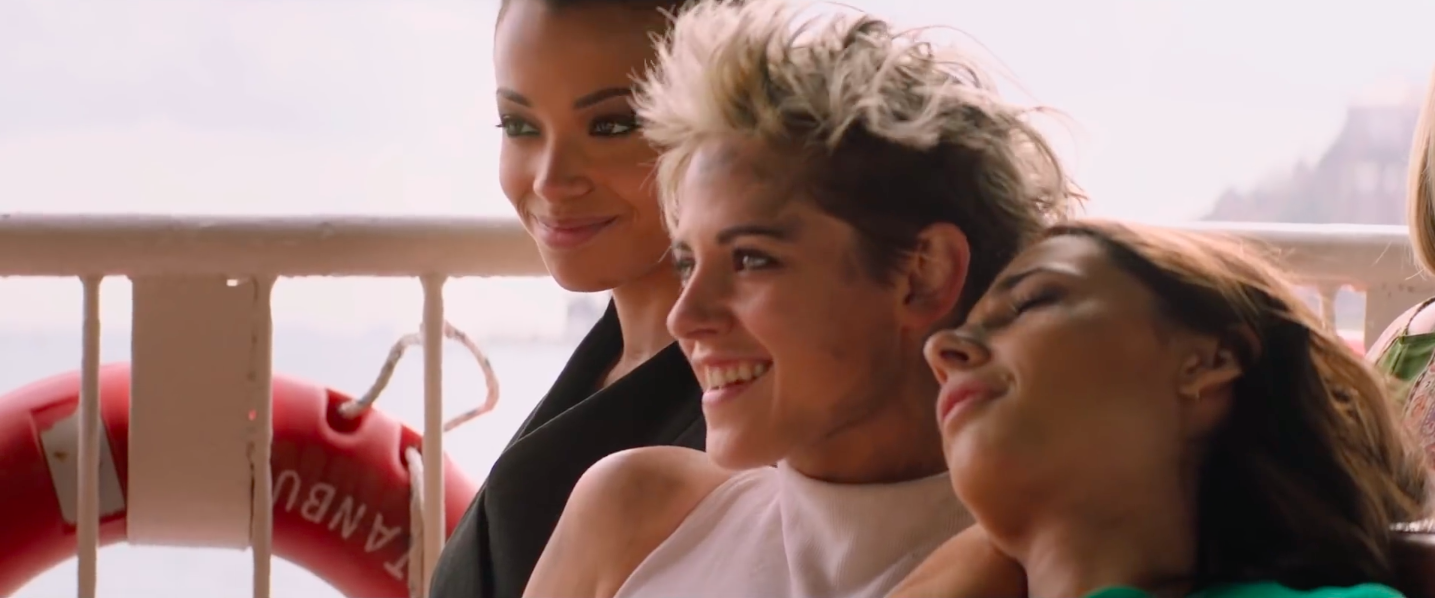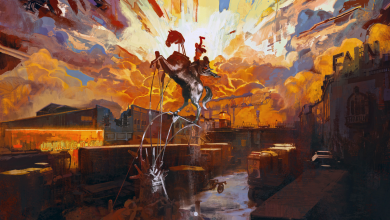Not So Angelic: A ‘Charlie’s Angels’ Review

Image source: YouTube
It’s hard to have faith in “Charlie’s Angels’” message of feminism when the entire movie revolves around them proudly identifying as “Angels” while its title soundtrack song is called “Don’t Call Me Angel.” It’s a little bit contradictory.
Quite apparent from all promotional materials, “Charlie’s Angels” serves as a performance of feminist principles while lacking any and all depth. An easy to follow storyline revolving around the theft and potential distribution of a device with the power to kill many is attempted, but it’s easy to forget the driving force of the story with the exaggerated and redundant fight and chase scenes. It’s obvious that with this remake, director Elizabeth Banks was attempting to check all her trope boxes to update this to the 21st century: women being badass fighters but still intelligent, extravagant outfits that never shift out of place during battle, forged female friendships. But it seems like there was still no place for transparent depictions of queerness in this remake.
As progressive as this movie makes itself seem, including its improved racial diversity from the previous adaptations, all this forced feminism falls flat when it’s not even able to embrace concrete queerness despite having Kristen Stewart as its main character (like c’mon? Have you seen her?). Despite sapphic undertones galore, Sabina (Stewart) never declares herself as lesbian, bi, or otherwise—not even in passing or mid-joke. The most overt thing we see is her checking out a woman’s ass in line at a workout studio. Not only does the sole indicator of queerness in the film rely on the audience’s rapt attention to catch it and is followed with no discussion of it, it is a moment resting entirely on sexual objectification. The only example you can provide of queer femininity is one produced specifically to satisfy the male gaze and to placate queer viewers? It seems like Sabina’s identity is supposed to be indicated from her appearance (her pixie cut, her adrogynous clothing, etc.) and the audience’s potential knowledge of Kristen Stewart’s sexuality, but never stated in a way that could truly offend audiences. As these are such obvious social indicators of a non-straight character, it comes off decidedly manipulative to suggest her potential queerness without any follow through.
It’s not solely the lack of an identified queer character that is offensive, but also the lost potential of a great romantic relationship between co-worker Angels, Sabina and Jane (Ella Balinksa.) With their relationship off to a rocky start during the opening mission, they get closer and closer as they train and befriend Elena (Naomi Scott). It culminates in an emotional scene between Sabina and Jane, after Sabina is injured and Jane heroically carries her from the ashes like a damn superhero (If they were a heterosexual couple, you would never doubt their romantic chemistry). Jane sobs over her unconscious body, crying out that “she can’t lose her too.” When Sabina wakes up, she tearily says that she didn’t know that Jane cared about her. The whole scene is as sapphic as it gets, right up until the point that they would kiss if there was justice in the world. Instead, the closing scene of the movie implies that Jane and Noah Centineo’s character, Langston (who really is just there and serves no purpose other than to hetero up this movie), will ultimately be together. Sabina and Jane’s relationship progression follows all the typical conventions of heterosexual romantic storyline arcs, yet audiences are supposed to reserve romantic judgement because they are both women. Not only is this a blatant disregard for the obvious intelligence of viewers who can pick up on romantic cues, but specifically offensive to queer women watching, who have to suffer through yet another movie that uses our aesthetics for profit without ever investing in our complex lives.
Similarly disappointing is not giving the option of having both strong friendships between women and sapphic relationships. An unfortunately frequent response to the plea for more queer women representation is “but female friendship is important to show too!” While of course it is, strong emotional connections are just as prominent amongst queer women and in queer relationships; but queer relationships and friendships are seen as lesser in importance (as we are a minority of women), and therefore almost last in importance to represent. This is statistically shown, too: only 12.8% of 109 films released by major studios in 2018 had queer characters, and only 36% of those inclusive portrayals showed lesbian women. Not following through on queer women characters is inexcusable, especially when the possibility is dangled in front of queer audiences to increase ticket sales.
“Charlie’s Angels” was an unnecessary remake that begs the question of whether this film is the best representation of feminism major studios can produce. Twitter user @eponawest put it best, “[Director] Elizabeth Banks melting down because she punched all the right buttons on the Liberal Feminist Capital Machine and no money is coming out?????” Women deserve better than shoddy representations of our abilities and strengths that aren’t performative in nature, and our feminism needs to be shown as widely inclusive of queer women. This one should have stayed in pre-production (we still love you, Kristen!)




